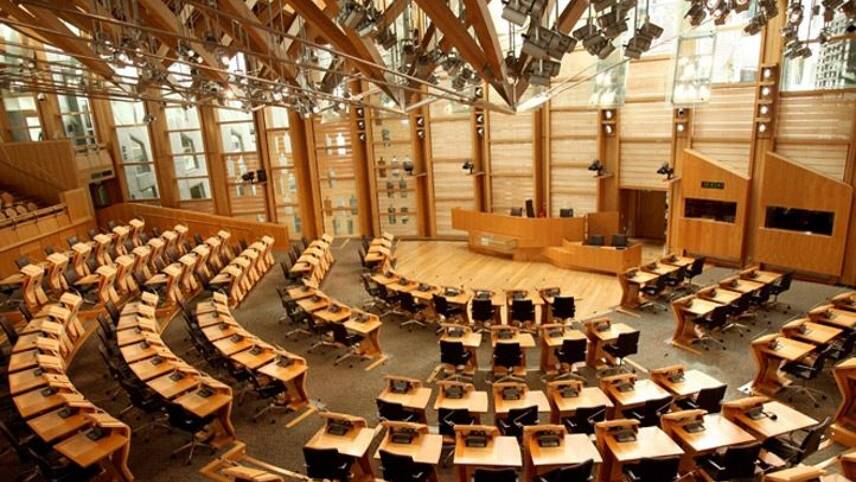Register for free and continue reading
Join our growing army of changemakers and get unlimited access to our premium content

Scotland implemented a new Climate Change policy package this year - but the CCC is warning that further ambition and action is needed in 2020
Sent to Holyrood today (17 December) by CCC chairman Lord Deben, the report states that green policy decisions taken by MSPs over the next 12 months will likely determine the direction of travel for the next 25 years.
Scotland is aiming to reduce its net emissions by 75% by 2030, and 100% by 2045, both against a 1990 baseline, in line with the CCC’s recommendations on the UK as a whole meeting net-zero by mid-century.
In order to spur progress towards these longer-term aims, Scotland has set an interim target of a 56% reduction in emissions – again, against 1990 levels – by 2020. But with national emissions having fallen just 3% in 2017, compared with 10% in 2016, the CCC is warning that the nation risks missing that shorter-term goal.
In order to bridge this emissions gap, the CCC is calling for Scotland to maintain the “near-complete elimination of fossil-fired electricity generation” through “sustained action in other sectors” – notably transport, heat, industry, the built environment and agriculture.
While praising Scotland’s policy progress around areas such as new housing and green finance over the past year, the CCC’s report ultimately concludes that Scotland’s next Climate Change plan “must set out a comprehensive strategy detailing the policies and governance that will drive a rapid, sustained transformation to a net-zero society” – if the nation is to meet its decarbonisation goals and impress other world leaders at COP26 in Glasgow next year.
“Net-zero planning must be embedded across all levels of government in Scotland,” the report states.
“It must also engage the public, provide a stable direction of travel and set out a simple, investable set of rules and incentives for business.
“Westminster must match Scottish policy ambition if Scotland – and the UK as a whole – is to make progress in key sectors where legislative powers are ‘reserved’… Both governments must work more closely to make the best use of devolved and reserved policy levers in key areas where responsibilities are split, including the future of heating, electric vehicles and low-carbon infrastructure.”
Good COP, bad COP
The report comes shortly after COP25 closed in Madrid, almost 40 hours behind schedule.
Policymakers present at the summit ultimately failed to deliver UN-wide agreements on higher carbon taxes; new emissions trading systems; an adjustment of nationally determined contributions (NDCs) to the Paris Agreement, in line with 1.5C; and the creation of a UN-wide ‘Loss and Damage’ fund and supporting framework, to be used to help communities in low-income areas recover from extreme weather events.
Observers have claimed that this was because oil and gas giants, as well as nations such as the US, Saudia Arabia and Australia, had been stalling talks and pushing for weak agreements that not all parties were willing to accept.
I am disappointed with the results of #COP25.
The international community lost an important opportunity to show increased ambition on mitigation, adaptation & finance to tackle the climate crisis.
But we must not give up, and I will not give up.
— António Guterres (@antonioguterres) December 15, 2019
As a result, several key discussions have been shelved for COP26, where the ‘Loss and Damage’ text is expected to be fleshed out, and Paris Agreement signatories will be required to update their NDCs in light of the IPPC’s landmark report on warming of 2C and 1.5C above pre-industrial levels.
After the keys to the COP26 presidency was handed to former Energy Minister Claire Perry O’Neill last week, the UK now has less than a year to prepare for what is being described as the most important COP since COP21 in 2015, when the Paris Agreement was ratified.
#COP26 is incredibly important. We will be looking to everybody to raise their #ambition, prioritise measurable #ClimateAction and commit to #greenhouse gas reduction and #naturebasedsolutions. 💪🌍 #UK2020 pic.twitter.com/GozLAXgdvM
— COP26President (@Cop26President) December 16, 2019
Christian Aid’s global climate lead Dr Katherine Kramer has called the task of overseeing a successful COP26 “gargantuan”, given that the UK is currently working towards tight Brexit deadlines and has just undergone a general election.
Sarah George


Please login or Register to leave a comment.